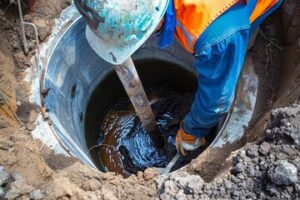SEO is becoming a central part of any business’s digital marketing strategy. It helps make your website visible and more likely to be clicked on, which leads to more customers and brand loyalty. To learn more, read this SEO starter guide. Click https://www.rankboss.com/.
It involves both technical aspects of a website and content-specific best practices. Many of these aspects improve user experience (UX). They include:

Keywords are the foundation of search engine optimization, and they’re one of the most important tools in your marketing arsenal. They define the content, structure, and purpose of your website and can help you attract the right audience. A well-defined SEO keyword strategy can help you achieve higher rankings, drive more traffic, and ultimately grow your business.
The first step in finding the right keywords is to understand what your audience is searching for. This can be done through a variety of methods, including online keyword research and competitive analysis. Once you have a clear understanding of the topics your audience is searching for, you can then begin to create your content and optimize it with relevant keywords.
When choosing SEO keywords, you want to choose words that are relevant to your business and will produce a high return on investment. You should also take into account the competition for those keywords and their intent. The more specific the keywords, the better your chances of ranking for them. Singular keywords may have a high search volume, but they can be difficult to rank for because of their broad nature. Singular keywords also tend to have a lot of competition, which can be overwhelming.
Long-tail keywords are more specific and can be targeted with less effort. These keywords are often easier to rank for, and they can provide a good return on investment for your website. These keywords are also more likely to generate organic traffic. They are a great option for smaller businesses that want to compete with the big players in their industry.
Once you have your list of keywords, it’s important to check if you already have content that targets those keywords. Using a site search tool like Ahrefs can be helpful. This will let you know if you have any existing pages that need to be updated or re-optimized.
When creating your content, make sure that you incorporate your chosen keywords into the title, header, and body of your pages. This will ensure that the search engines can understand your page’s content and can rank it in relevant searches. Also, don’t forget to include your keywords in the metadata of your pages. Excessively repeating your chosen keywords can be distracting for users and can also be considered spam, which can lead to a penalty from Google.
Content
Content is a key component of SEO, providing increased visibility and targeted audience engagement. A successful SEO content strategy combines keyword research, quality content creation and on-page optimization to create a high-performing website that delivers results. But it’s important to remember that SEO is a complex process and it takes time for the keywords you target to show up in search engine results pages (SERPs). In addition, the search engines are constantly evolving and tweaking their algorithms to provide users with the best possible experience.
Having a strong SEO content marketing strategy is critical to growing your organic traffic. But, more importantly, it’s crucial to ensuring that you are targeting the right people and converting those visitors into customers. A key factor to this is understanding the user intent behind your target keywords. By doing so, you can ensure that your SEO content is addressing the needs of your audience and providing them with relevant information.
Content has become an increasingly important factor in search engine optimization. This is because search engines are getting better at understanding what content is about and how it can help a user in a specific situation. This is largely due to the fact that they are getting more data about users and their activities.
In the past, SEO was based on including keywords in your content at certain times and places to impress search engine crawlers. Today, this is still a part of SEO, but it is not the most important factor. The most important thing for SEO is to understand the users and their needs, and to serve them with relevant content that helps them achieve their goals.
The best way to do this is by writing content that is useful and informative to your audience. By doing this, you can create content that will be appreciated by your audience and increase your chances of converting them into customers. Also, you can use images and videos to add value to your content and make it more appealing. This will improve the user experience and boost your search engine rankings.
Backlinks
A backlink is a link from one website to another. It is important for SEO because it tells search engines that other websites think highly of your content and consider it an authoritative resource on a particular topic. It also helps attract new visitors and extend your reach to a wider audience. It is a key component of your digital strategy and should be a priority for your team to build high quality, relevant backlinks.
There are many types of backlinks, but the most valuable are those that are genuinely earned and contextually natural. These include editorial links, guest blogging, and relationship-based links. However, you must remember that a single high-quality backlink can be more effective than 1,000 low-quality links.
You can use a tool like SEMRush to analyze your competitors’ backlinks and find out who is ranking for your target keywords. The tool can also show you how many referring domains your competitors have, as well as their domain authority. It can even identify “spam flags,” which are factors that could potentially cause a penalty by Google.
The best way to avoid spam penalties is to focus on link quality, rather than quantity. It is recommended that you build links from sites that are related to your industry. This will help you rank better and drive more traffic to your site. In addition, you should always check your backlinks for spam and try to remove them as soon as possible.
When analyzing your backlinks, it is essential to look at the relevance of the anchor text and the page where it appears. If the link is from a popular website in your niche, it will pass more relevance signals than a link from an irrelevant blog post. It is also important to evaluate the overall reputation of the site where your backlinks appear. A link from a spammy website may cause you to lose rankings and will damage your online reputation.
Traditional link building has been a major part of the SEO landscape for years, but it has recently come under increasing scrutiny. While it still can help you get top rankings, it is no longer enough on its own. Instead, you need to produce great content that earns high-tier editorial coverage and builds a strong brand reputation.
Analytics
SEO analytics provides valuable insights into a website’s performance, enabling businesses to optimize their sites and achieve better results in search engine rankings. It enables you to measure and track progress toward specific goals, such as increasing traffic or improving user engagement. It also helps you to assess the effectiveness of your keyword strategy and make data-driven decisions that will improve your rankings in search engines.
Analytics tools can be complex, but they are a must-have for any business that wants to maximize the visibility of their website and boost their ranking in search engine results pages (SERPs). They provide a variety of reports, visualizations, and charts to help you understand your audience’s behavior and optimize your content for conversions. Moreover, these tools help you to analyze and monitor social media trends and conversations that impact your industry or niche.
Goal tracking is a crucial aspect of SEO, as it allows you to track the performance of your marketing campaigns and identify areas for improvement. It also helps you to demonstrate ROI and secure necessary resources for future optimization efforts. Identifying and setting goals is the first step in using analytics for your SEO strategy. However, you must ensure that your goals are accurate and measurable in order to get the most out of your campaign.
In addition to goal tracking, you should also track and analyze your competitors’ SEO strategies and keywords. This will allow you to see which keywords are working and where your competition is getting stuck in their strategy. It will also help you stay ahead of the competition and keep up with changing digital landscapes and user behavior.
Besides tracking metrics, you should also evaluate the overall user experience of your site to identify opportunities for improvement. This is particularly important in recent years, when Google has put a greater emphasis on user experience through various algorithm updates. Ultimately, user experience is one of the most important factors in SEO, as it drives organic traffic and increases conversions.
The most effective way to use analytics for your SEO strategy is to focus on the user experience and understand how people interact with your site. By doing this, you can create more targeted campaigns and deliver more relevant content to your visitors.








